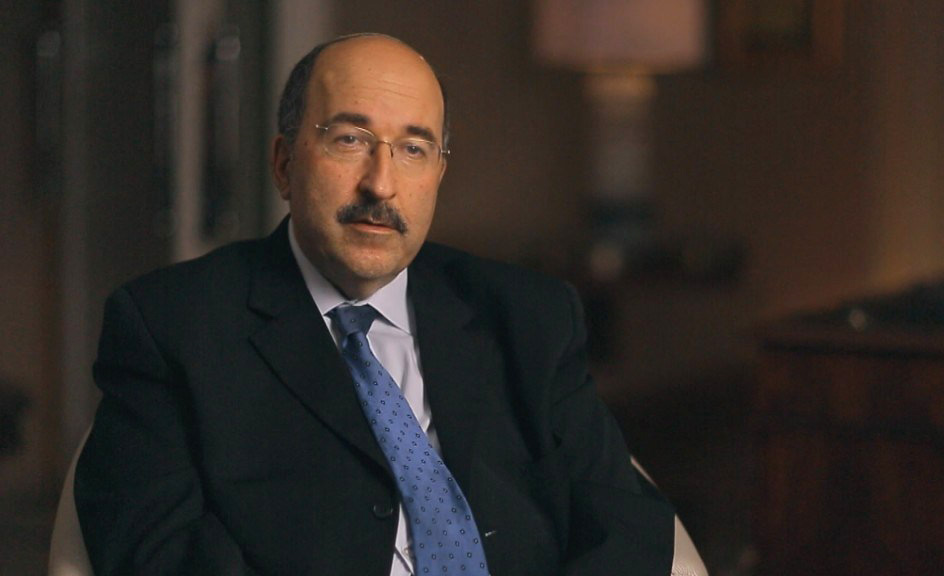Australia/Israel Review
From Adversaries to Friends
Sep 3, 2018 | Ahron Shapiro

A number of Gulf states are becoming increasingly frustrated by Palestinian Authority President Mahmoud Abbas’ refusal to negotiate with Israel according to former Israeli Ambassador to the UN Dore Gold.
As a result of this development, Gold said, the emergence of new Arab defence and economic relationships with Israel, even in the absence of a peace agreement, cannot be ruled out.
Ambassador Gold, the long-time Director of the Jerusalem Centre for Public Affairs (JCPA), who recently served as Director General of the Israeli Ministry of Foreign Affairs (2015-2016) and as a foreign affairs advisor to Israeli Prime Minister Binyamin Netanyahu, discussed this and other issues at an AIJAC press briefing on August 14.
Most of the Ambassador’s remarks centred around Israel’s opposition to Iranian expansionism in the region – a key foreign policy interest, not only for Israel but many of Israel’s neighbours – and this shared interest has further opened avenues of strategic alignment between Israel and a variety of Sunni Arab countries, some far removed from the Persian Gulf theatre.
The Ambassador referred specifically to the diplomatic uproar in May that led Morocco to sever ties with Iran. At that time, Moroccan Foreign Minister Nasser Bourita claimed to have seen proof that the Lebanese Hezbollah, facilitated by the Iranian embassy in Algeria, provided weapons and training to the Polisario Front militia challenging Morocco’s control of the disputed Western Sahara.
Without a doubt, the issue of how to deal with Iran has brought Israel and many Sunni Arab states closer together, Gold said, at a level of communication far deeper than meets the eye.
As an example, the Ambassador recalled an incident where, during the time that the Obama Administration was negotiating the Iranian nuclear deal, a top Saudi diplomat had suggested to Gold that Israeli and Saudi Arabian diplomats hold a joint press conference to express their dissatisfaction over the US’s handling of this issue. Gold said that he advised against a public display of this kind, and other avenues of conveying the message were chosen.
Ambassador Gold also spoke about the complex situation in Syria, where Israel is trying to thwart Iranian weapons transfers to Hezbollah, and prevent the deployment of Iranian bases close to Israel’s border along the Golan in a battlefield that is overshadowed by Russian intervention.
In the Ambassador’s view, Russia continues to act with relative indifference towards Iran, both in Syria and regarding Iran’s nuclear ambitions – a policy he feels is based on false assumptions.
“The Russians have an attitude towards Iran that – I’ve told them to their faces – I think is mistaken,” Gold said. “They believe that… most of the Muslims that are causing them trouble are Sunni, and therefore the rise of Shi’ite power in Iran doesn’t affect their interests.”
Aware, however, that the Russians consider ISIS to be a serious threat, Gold said he liked to point out to Russian diplomats that when the US invaded Afghanistan, Sunni jihadist leader Abu Musab al-Zarqawi – recognised by ISIS expert Joby Warrick as the founder of the “group that became ISIS” – was provided refuge by none other than Iran.
“What that showed,” Gold said, “is that Iran has the capacity to make alliances with Sunni countries or Sunni movements. So, if [the Russians] think that they are protected from Iranian mischief because Iran is Shi’ite and the people that affect [them] are Sunni, [they’re] wrong.”
Gold presided over the Israeli Foreign Ministry during a time of broad initiatives to develop better relationships all over the world, from small countries in Africa, Oceania and Central America, to rising powers such as India and China.
However, what perhaps excites him the most is the transformative potential of making friends in the Arab world, a goal he believes is in reach.
“One of the things we should try and do as the state of Israel is try and build on those relationships, and take former adversaries and make them into allies. That’s what I worked on when I was in the Foreign Ministry, and that’s what I will continue to work on, even though I’m not formally in government.”
Ambassador Gold was in Australia to deliver the 2018 Anti-Defamation Commission’s annual Gandel Oration.
Tags: Iran, Israel, Middle East, Palestinians, Russia, Syria






